Best movies & TV Shows like Redigo
A unique, carefully handpicked, selection of the best movies like Redigo Starring Richard Egan, Roger Davis, Rudy Solari, Elena Verdugo, and more. If you liked Redigo then you may also like: The Big Sombrero, The Barbara Stanwyck Show, The Bob Cummings Show, The Brak Show, Captain Kangaroo and many more popular movies featured on this list. You can further filter the list even more or get a random selection from the list of similar movies, to make your selection even easier.
Redigo is a 15-week Western dramatic series, set on a New Mexico ranch during the early 1960s, which aired over NBC from September 24 to December 31, 1963. The series features Richard Egan as ranch owner Jim Redigo, Roger Davis as Mike the ranch hand, and Elena Verdugo as Gerry. Don Diamond appeared in four episodes, three as the character Arturo. Redigo was the truncated second half-hour season of the previous one-hour series, Empire, which aired from September 25, 1962, to May 13, 1963. Both programs were placed on the Tuesday evening schedule against CBS's The Red Skelton Show. Redigo also lost out in the ratings to the ABC military sitcom, McHale's Navy, starring Ernest Borgnine and Tim Conway. In Redigo, Egan's character Jim Redigo was no longer the manager of the large Garrett Ranch but the owner of his own smaller spread nearby. The half-hour format made it hard for the program to develop complex characters as had been done in the initial one-hour version of the show.
You may filter the list of movies on this page for a more refined, personalized selection of movies.
Still not sure what to watch click the recommend buttun below to get a movie recommendation selected from all the movies on this list
The Barbara Stanwyck Show
The Barbara Stanwyck Show is an American anthology drama television series which ran on NBC from September 1960 to September 1961. Barbara Stanwyck served as hostess, and starred in all but four of the half-hour productions. The four she did not star in were actually pilot episodes of potential series programs which never materialized. Stanwyck won the Emmy Award in 1961 for Outstanding Performance by an Actress in a Series. Three of the shows in which Stanwyck starred were an attempt at spinning off a dramatic series of her own, in which she appeared as "Josephine Little", an American woman running an import-export shop in Hong Kong. The series, produced at Desilu Studios, was directed by Stuart Rosenberg. The Barbara Stanwyck Show lasted one season. It aired at 10 p.m. Eastern on Mondays opposite Jackie Cooper's military sitcom Hennesey on CBS and the second half of Gardner McKay's Adventures in Paradise on ABC.
The Bob Cummings Show
The Bob Cummings Show is an American sitcom starring Robert "Bob" Cummings which was produced from January 2, 1955 to September 15, 1959. The Bob Cummings Show was the first series ever to debut as a midseason replacement. The program began with a half-season run on NBC, then ran for two full seasons on CBS, and returned to NBC for its final two seasons. The program was later rerun in the daytime hours on ABC and then syndicated under the title Love That Bob. A similar, but less successful, follow-up series, The New Bob Cummings Show, was broadcast on CBS during the 1961-62 television season.
The Brak Show
The Brak Show is an animated television series that aired on Cartoon Network's late night programming block, Adult Swim. The Brak Show is a spin-off of the animated television series, Space Ghost Coast to Coast, and featured recurring characters from Space Ghost Coast to Coast and Cartoon Planet. Both programs used stock footage from the Hanna-Barbera cartoon Space Ghost. The protagonist is Brak, voiced by Andy Merrill, who developed a quirky persona for the character. An earlier version of the pilot episode, "Mr. Bawk Ba Gawk", originally aired prior to the official launch of Adult Swim on Cartoon Network on December 21, 2000, as part of a preview of upcoming Adult Swim shows. The series made its official debut during the night Adult Swim officially launched on September 2, 2001, and ended on December 31, 2003, with a total of 28 episodes. On May 24, 2007 a webisode for the series was released on Adult Swim Video, ending the series.
Captain Kangaroo
Captain Kangaroo was an American children's television series which aired weekday mornings on the American television network CBS for nearly 30 years, from October 3, 1955 until December 8, 1984, making it the longest-running nationally broadcast children's television program of its day. In 1986, the American Program Service integrated some newly produced segments into reruns of past episodes, distributing the newer version of the series until 1993. The show was conceived and the title character played by Bob Keeshan, who based the show on "the warm relationship between grandparents and children." Keeshan had portrayed the original Clarabell the Clown on The Howdy Doody Show when it aired on NBC. Captain Kangaroo had a loose structure, built around life in the "Treasure House" where the Captain would tell stories, meet guests, and indulge in silly stunts with regular characters, both humans and puppets. The show was telecast live to the East Coast and the Midwest for its first four years and broadcast on kinescope for the West Coast, as Keeshan would not perform the show live three times a day, and was in black-and-white until 1966. The May 17, 1971 episode saw two major changes on the show: The Treasure House was renovated and renamed "The Captain's Place" and the Captain replaced his navy blue coat with a red coat. In September 1981, CBS shortened the hour-long show to a half-hour, briefly retitled it Wake Up with the Captain, and moved it to an earlier time slot; it was later moved to weekends in September 1982, and returned to an hour-long format. It was canceled by CBS at the end of 1984.
Cheyenne
Cheyenne is an American western television series of 108 black-and-white episodes broadcast on ABC from 1955 to 1963. The show was the first hour-long western, and in fact the first hour-long dramatic series of any kind, with continuing characters, to last more than one season. It was also the first series to be made by a major Hollywood film studio which did not derive from its established film properties, and the first of a long chain of Warner Brothers original series produced by William T. Orr.
The Chica Show
The Chica Show is an American animated television series based on the puppetry segments of The Sunny Side Up Show on PBS Kids Sprout, which features the chicken puppet character Chica in full episodic and animated adventures rather than the traditional continuity of Sunny Side Up. The program premiered on November 24, 2012, with a preview episode airing on October 31, 2012. The program began to air as part of the NBC Kids block on Comcast sister network NBC in February 2013, and is fully compliant with E/I regulations. A second season started on July 29, 2013.
The Doris Day Show
The Doris Day Show is an American sitcom that was originally broadcast on the CBS network from September 1968 until March 1973, remaining on the air for five seasons and 128 episodes. In addition to showcasing Doris Day, the show is remembered for its many abrupt format changes over the course of its five-year run. It is also remembered for Day's statement, in her autobiography Doris Day: Her Own Story, that her husband Martin Melcher had signed her to do the TV series without her knowledge, a fact she only discovered when Melcher died of heart disease on April 20, 1968. The TV show premiered on Tuesday, September 24, 1968.
George of the Jungle
George of the Jungle is an American animated series produced by Jay Ward and Bill Scott, who created The Rocky and Bullwinkle Show. The character George was inspired by the legend of Tarzan. It ran for 17 episodes on Saturday mornings from September 9 to December 30, 1967, on the American TV network ABC. The half-hour program was distributed for many years by Worldvision Enterprises, currently part of CBS Television Distribution. Each Full Episode was a compilation of 3 mini episodes from 3 different shows: George of the Jungle; Tom Slick; Super Chicken -Each voiced by the same actors.
Gidget
Gidget is an American sitcom about a surfing, boy-crazy teenager called "Gidget" and her widowed father Russ Lawrence, a UCLA professor. Sally Field stars as Gidget with Don Porter as father Russell Lawrence. The series was first broadcast on ABC from September 15, 1965 to April 21, 1966. Gidget was among the first regularly scheduled color programs on ABC, but did poorly in the Nielsen ratings and was cancelled at the end of its first season.
Gomer Pyle, U.S.M.C.
Gomer Pyle, U.S.M.C. is an American situation comedy that originally aired on CBS from September 25, 1964, to May 2, 1969. The series was a spinoff of The Andy Griffith Show, and the pilot was aired as the finale of the fourth season of The Andy Griffith Show on May 18, 1964. The show ran for five seasons and a total of 150 episodes. In 2006, CBS Home Entertainment began releasing the series on DVD. The final season was released in November 2008. The series was created by Aaron Ruben, who also produced the show with Sheldon Leonard and Ronald Jacobs. Filmed and set in California, it stars Jim Nabors as Gomer Pyle, a naive but good-natured gas-station attendant from the town of Mayberry, North Carolina, who enlists in the United States Marine Corps. Frank Sutton plays Gomer's high-octane, short-fused Gunnery Sergeant Vince Carter, and Ronnie Schell plays Gomer's friend Gilbert "Duke" Slater. Allan Melvin played in the recurring role of Gunnery Sergeant Carter's rival, Sergeant Charley Hacker. The series never discussed nor addressed the then-current Vietnam War, instead focusing on the relationship between Gomer and Sergeant Carter. The show retained high ratings throughout its run.
Howdy Doody
Howdy Doody is an American children's television program that was created and produced by E. Roger Muir and telecast on the NBC network in the United States from December 27, 1947 until September 24, 1960. It was a pioneer in children's television programming and set the pattern for many similar shows. One of the first television series produced at NBC in Rockefeller Center, in Studio 3A, it was also a pioneer in early color production as NBC used the show in part to sell color television sets in the 1950s.
H.R. Pufnstuf
H.R. Pufnstuf is a children's television series produced by Sid and Marty Krofft in the United States. It was the first Krofft live-action, life-size puppet program. The seventeen episodes were originally broadcast from September 6, 1969 to December 27, 1969. The broadcasts were successful enough that NBC kept it on the Saturday morning schedule until August 1972. The show was shot in Paramount Studios and its opening was shot in Big Bear Lake, California. Reruns of the show aired on ABC Saturday morning from September 2, 1972 to September 8, 1973 and on Sunday mornings in some markets from September 16, 1973 to September 8, 1974. It was syndicated by itself from 1974 to 1978 and in a package with six other Kroft series under the banner Kroft Superstars from 1978 to 1985. In 2004 and 2007, H.R. Pufnstuf was ranked #22 and #27 on TV Guide's Top Cult Shows Ever.
Josie and the Pussycats
Josie and the Pussycats is an American animated television series, based upon the Archie Comics comic book series of the same name created by Dan DeCarlo. Produced for Saturday morning television by Hanna-Barbera Productions, sixteen episodes of Josie and the Pussycats aired on CBS during the 1970-71 television season, and were rerun during the 1971-72 season. In 1972, the show was re-conceptualized as Josie and the Pussycats in Outer Space, sixteen episodes of which aired on CBS during the 1972-73 season and were rerun the following season. Reruns of the original series alternated between CBS, ABC, and NBC from 1974 through 1976. This brought its national Saturday morning TV run on three networks to six years. Josie and the Pussycats featured an all-girl pop music band that toured the world with their entourage, getting mixed up in strange adventures, spy capers, and mysteries. On the small-screen, the group consisted of level-headed lead singer and guitarist Josie, intelligent tambourinist Valerie, and air-headed blonde drummer Melody. Other characters included their cowardly manager Alexander Cabot III, his conniving sister Alexandra, her cat Sebastian, and muscular roadie Alan.
Julia
Julia is an American sitcom notable for being one of the first weekly series to depict an African American woman in a non-stereotypical role. Previous television series featured African American lead characters, but the characters were usually servants. The show stars actress and singer Diahann Carroll, and ran for 86 episodes on NBC from September 17, 1968 to March 23, 1971. The series was produced by Savannah Productions, Inc., Hanncar Productions, Inc., and 20th Century-Fox Television. During pre-production, the proposed series title was Mama's Man. The series was also unique in that it was among the few situation comedies in the late 1960s that did not use a laugh track; however, 20th Century-Fox Television added them when the series was reissued for syndication and cable rebroadcasts in the late 1980s.
Life with Lucy
Life With Lucy is an American sitcom starring Lucille Ball. The show ran on the ABC network in 1986 not on the CBS network as her previous shows had and unlike Ball's previous programs, it was a critical and ratings flop. Only eight out of the thirteen episodes that were filmed aired before ABC cancelled the series. It is the very last sitcom she starred in before her death in 1989.
The Lucy Show
The Lucy Show is an American sitcom that aired on CBS from 1962–68. It was Lucille Ball's follow-up to I Love Lucy. A significant change in cast and premise for the 1965–66 season divides the program into two distinct eras; aside from Ball, only Gale Gordon, who joined the program for its second season, remained. For the first three seasons, Vivian Vance was the co-star. The earliest scripts were entitled The Lucille Ball Show, but when this title was declined, producers thought of calling the show This Is Lucy or The New Adventures of Lucy, before deciding on the title The Lucy Show. Ball won consecutive Emmy Awards as Outstanding Lead Actress in a Comedy Series for the series' final two seasons, 1966–67 and 1967–68.
Password
Password is an American television game show which was created by Bob Stewart for Goodson-Todman Productions. The host was Allen Ludden, who had previously been well known as the host of the G.E. College Bowl. Password originally aired for 1,555 daytime telecasts each weekday from October 2, 1961 to September 15, 1967 on CBS, along with weekly prime time airings from January 2, 1962 to September 9, 1965 and December 25, 1966 to May 22, 1967. An additional 1,099 daytime shows aired from April 5, 1971 to June 27, 1975 on ABC. The show's announcers were Jack Clark and Lee Vines on CBS and John Harlan on ABC. Two revivals later aired on NBC from 1979–1982 and 1984–1989, followed by a prime time version on CBS from 2008–2009. In 2013, TV Guide ranked it #8 in its list of the 60 greatest game shows ever.
The Rifleman
The Rifleman is an American Western television program starring Chuck Connors as rancher Lucas McCain and Johnny Crawford as his son, Mark McCain. It was set in the 1880s in the town of North Fork, New Mexico Territory. The show was filmed in black-and-white, half-hour episodes. "The Rifleman" aired on ABC from September 30, 1958 to April 8, 1963 as a production of Four Star Television. It was one of the first prime time series to have a widowed parent raise a child.
Search for Tomorrow
Search for Tomorrow is an American soap opera that premiered on September 3, 1951, on CBS. The show was moved from CBS to NBC on March 29, 1982. It continued on NBC until the final episode aired on December 26, 1986, a run of thirty-five years. At the time of its final broadcast, it was the longest-running non-news program on television. This record would later be broken by Hallmark Hall of Fame, which premiered on Christmas Eve 1951 and still airs occasionally. The show was created by Roy Winsor and was first written by Agnes Nixon for thirteen weeks and, later, by Irving Vendig.
The Brothers García
The Brothers García is an American sitcom that premiered in 2000 on Nickelodeon and ended in 2004. It was among the first projects of Sí TV, an effort to produce programming featuring Latino characters, however being aimed at a diverse audience. The series was billed as the first English-language sitcom to have an all Latino cast and creative team. The series aired on the programming block Nick on CBS from September 18, 2004 to September 17, 2005, where the series ended its initial run. Reruns on The N started on April 7, 2008, and ended in May 23, 2008. Similarities to the series could be made to the style of The Wonder Years and Everybody Hates Chris, with an older version of the main character narrating each episode in a witty and sarcastic manner.
Paper Dolls
Paper Dolls is an American prime time soap opera which aired for 14 episodes on ABC from September 23, 1984 to December 25, 1984. Set in New York's fashion industry, the show centered around top modeling agency owner Racine, her conflicts with the family of cosmetics tycoon Grant Harper, and the careers of two teenage models. The series was based on a 1982 TV movie of the same name.
Valentine's Day
Valentine's Day is a 1964 comedy television series that appeared on ABC's schedule. The series starred Tony Franciosa as Valentine Farrow, a swinging Manhattan publishing executive, and Jack Soo, later of Barney Miller as Rocky Sin, Farrow's poker-playing con-artist valet. The show was created by Hal Kanter and lasted only one season. One noteworthy episode was produced as a tie-in to the movie Rio Conchos, in which Franciosa co-starred; he played both Valentine and his Mexican character from the feature.
The Tall Man
The Tall Man is a half-hour American western television series about Sheriff Pat Garrett and the gunfighter Billy the Kid that aired seventy-five episodes on NBC from 1960 to 1962, filmed by Revue Productions.
Hazel
Hazel is an American sitcom about a fictional live-in maid named Hazel Burke and her employers, the Baxters. The five-season, 154-episode series aired in primetime from September 28, 1961 until April 11, 1966 and was produced by Screen Gems. The show aired on NBC for its first four seasons, and then on CBS for its final season. The first season, except for one color episode was in black and white, the remainder in color. The show was based on the popular single-panel comic strip by cartoonist Ted Key, which appeared in the Saturday Evening Post.
The Red Skelton Show
The Red Skelton Show is an American variety show that was a television staple for two decades, from 1951 to 1971. It was second to Gunsmoke and third to The Ed Sullivan Show in the ratings during that time. Skelton, who had previously been a radio star, had appeared in several motion pictures as well. Although his television series is largely associated with CBS, where it appeared for more than fifteen years, it actually began and ended on NBC. During its run, the program received three Emmy Awards, for Skelton as best comedian and the program as best comedy show during its initial season, and an award for comedy writing in 1961.
The Robonic Stooges
The Robonic Stooges was a 30-minute Saturday morning animated series featuring the characters of The Three Stooges in new roles as clumsy crime-fighting bionic superheroes. It was developed by Norman Maurer and produced by Hanna-Barbera Productions from September 10, 1977, to March 18, 1978, on CBS and contained two segments, The Robonic Stooges and Woofer & Wimper, Dog Detectives. The Robonic Stooges originally aired as a segment on The Skatebirds from September 10, 1977, to December 24, 1977, on CBS. When CBS canceled The Skatebirds in early 1978, the trio was given their own half-hour timeslot which ran for 16 episodes.
Have Gun, Will Travel
Have Gun – Will Travel is an American Western television series that aired on CBS from 1957 through 1963. It was rated number three or number four in the Nielsen ratings every year of its first four seasons. It was one of the few television shows to spawn a successful radio version. The radio series debuted November 23, 1958. The television show is presently shown on the Encore-Western channel. Have Gun – Will Travel was created by Sam Rolfe and Herb Meadow and produced by Frank Pierson, Don Ingalls, Robert Sparks, and Julian Claman. There were 225 episodes of the TV series, 24 written by Gene Roddenberry. Other contributors included Bruce Geller, Harry Julian Fink, Don Brinkley and Irving Wallace. Andrew McLaglen directed 101 episodes and 19 were directed by series star Richard Boone.
Daniel Boone
Daniel Boone is an American action-adventure television series starring Fess Parker as Daniel Boone that aired from September 24, 1964 to September 10, 1970 on NBC for 165 episodes, and was made by 20th Century Fox Television. Ed Ames co-starred as Mingo, Boone's Cherokee friend, for the first four seasons of the series. Albert Salmi portrayed Boone's companion Yadkin in season one only. Dallas McKennon portrayed innkeeper Cincinnatus. Country Western singer-actor Jimmy Dean was a featured actor as Josh Clements during the 1968–1970 seasons. Actor and former NFL football player Rosey Grier made regular appearances as Gabe Cooper in the 1969 to 1970 season. The show was broadcast "in living color" beginning in fall 1965, the second season, and was shot entirely in California and Kanab, Utah.
McHale's Navy
An experienced South Pacific Sea Dog by the name of Quinton McHale, was commissioned as a Lieutenant Commander into the U.S. Navy Reserve at the start of World War II. McHale was made the Skipper of the Torpedo Patrol (PT) Boat #73 stationed at the U.S. Naval Installation on the island of Taratupa in the Southwest Pacific. The 73 'Family' included, among others, a con man and amateur Magician, a womanizing hunk, a dedicated Family man, a guitar-playing, moonshine-making Tennessee good ol' boy, and even a deserter from the Japanese Navy, who was an excellent cook.
Lady Blue
Lady Blue is a crime drama starring Jamie Rose as a Chicago female homicide detective Katy Mahoney. The show was produced by MGM/UA Television and aired on ABC-TV from September 26, 1985 to January 25, 1986 for 13 episodes. It was cancelled after one season after low ratings in its Thursday night slot, but also because it was considered too violent for its time. The show later aired on Saturday nights but the show failed there as well. It ranked 72nd out of 82 programs that season, and averaged a 10.7 household rating. It was said that Katy Mahoney was the female version of Harry Callahan aka Dirty Harry, prompting television critics to refer to Mahoney's character as "Dirty Harriet".
Worst Week
Worst Week is an American TV series which originally aired on CBS from September 22, 2008 to June 6, 2009. The series was based on the British sitcom The Worst Week of My Life. The show was adapted for American audiences by Fox under the title Worst Week of My Life, but a series failed to materialize after the pilot was filmed. The series aired on CBS Mondays at 9:30pm ET/PT, following Two and a Half Men. The premiere attracted 11 million viewers but lost a third of its lead-in audience. Ratings dropped to a low of 8.4 million viewers with the sixth episode, then began to climb steadily. They reached a high of 12.12 million viewers with the eleventh episode but declined afterwards. The season finale titled "The Epidural" aired on February 16, 2009. The Series is currently being shown in Ireland on RTÉ Two, Sundays at 3:40am. On May 20, 2009, CBS announced its new season schedule and canceled Worst Week. A previously unaired episode entitled "The Party" aired on June 6, 2009. Worst Week is set in Manassas, Virginia
Meet McGraw
Meet McGraw is an American dramatic television series starring Frank Lovejoy in the role of the hard-hitting detective McGraw, a man specifically given no first name in the program. Forty-one half-hour episodes aired on NBC during the 1957-1958 season, sponsored by Procter & Gamble. The series was produced by the Desilu Studios, most of whose productions were broadcast by CBS. The theme song for the series is "One For My Baby" by Harold Arlen and Johnny Mercer. Meet McGraw preceded The Bob Cummings Show on Tuesday evenings on NBC. It aired at 9:00pm ET/PT opposite John Lupton’s Western series, Broken Arrow on ABC and Bud Collyer's To Tell the Truth quiz show on CBS. After its cancellation, Meet McGraw was repeated as The Adventures of McGraw on ABC in 1958-1959, but not in prime time. A number of episodes of the series, including "Mohave" and "Lady in Limbo," are available on DVD.
George
George was a Swiss-Canadian television series which aired on CTV on Thursday evenings in 1972-73. The series was based on the 1971 film George!, about the adventures of a St. Bernard dog and his owner who live in Switzerland. Marshall Thompson starred in both the film and the resulting half-hour series. The series made its CTV debut in a Thursday evening time slot on 16 September 1972. However, George ended in 1973 after its only season. The Globe and Mail's Blaik Kirby considered the program to be "abysmal". Despite its short run and mixed critical reaction, the series was rerun on CTV affiliates for years afterwards, usually to fill Saturday morning schedules.



































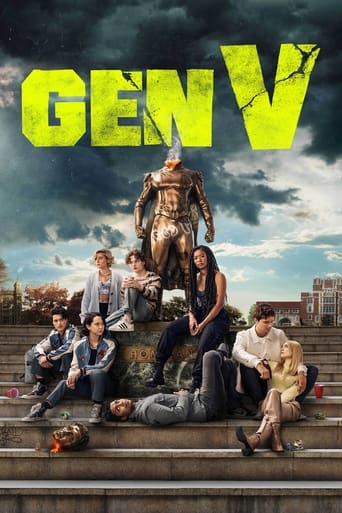
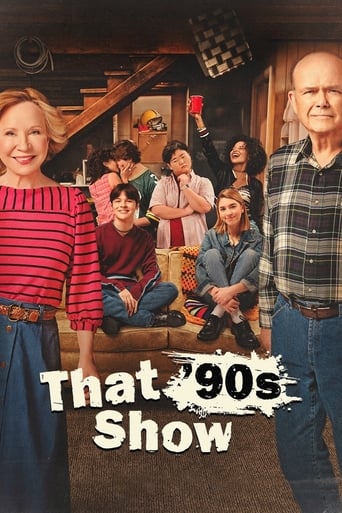
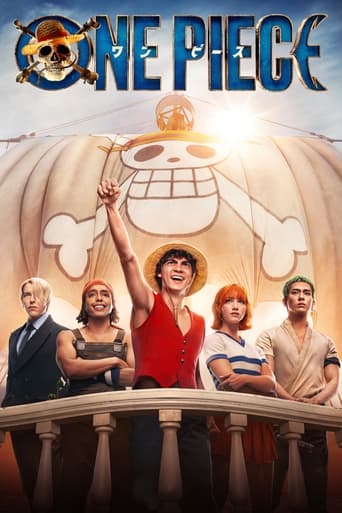
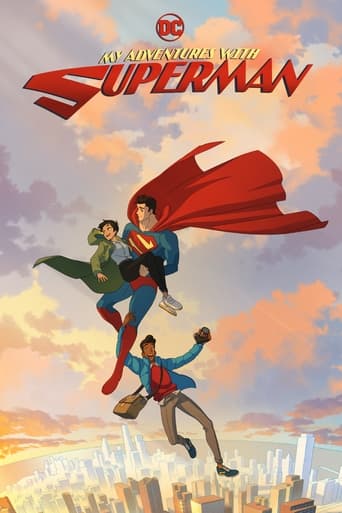
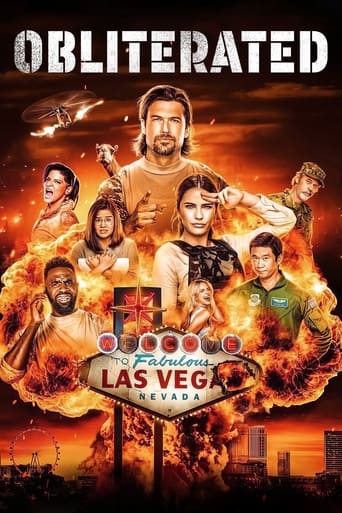
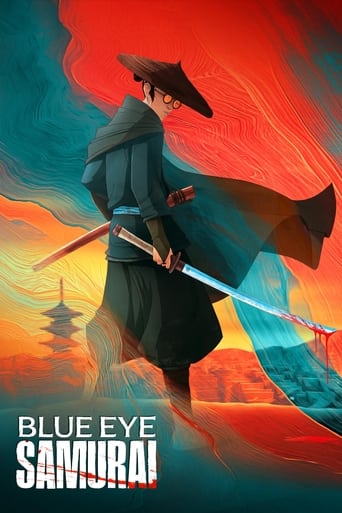
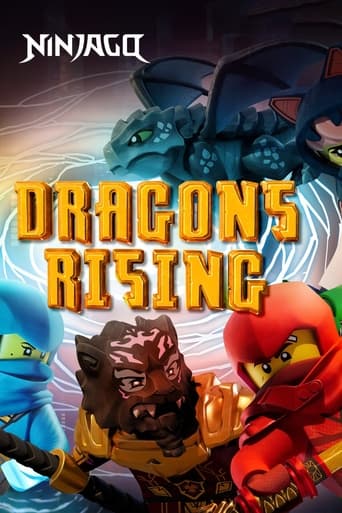
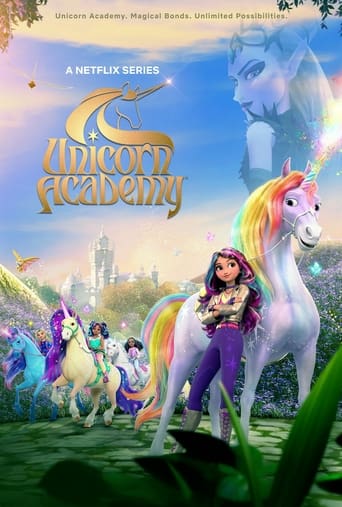
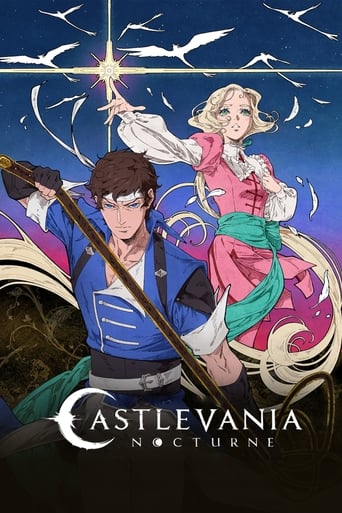


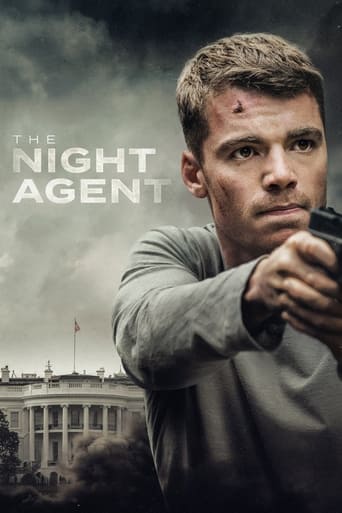
The Big Sombrero
Gene is hired to be foreman of the Big Sombrero ranch by Jim Garland, who is handling all the business affairs of the owner, Estrellita Estrada, who is more interested in going to America than taking care of her Mexican holdings. Gene, discovering Garland's plan to run all the Mexican rancheros off the ranch, turns against his boss and shortly finds himself in the middle of cattle stampedes and an avalanche started by Garland's men.